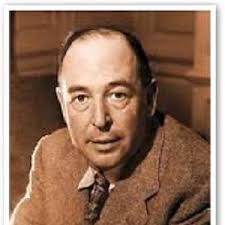C. S Lewis Bio
C. S Lewis was a British writer and lay theologian. He held academic positions in English literature at both Oxford University and Cambridge University.
C.S Lewis Early Life
When his dog Jacksie was killed by a car, the four-year-old Lewis adopted the name Jacksie. At first, he would answer to no other name, but later accepted Jack, the name by which he was known to friends and family for the rest of his life.
When he was seven, his family moved into Little Lea, the family home of his childhood, in the Strandtown area of East Belfast.
As a boy, Lewis was fascinated with anthropomorphic animals; he fell in love with Beatrix Potter’s stories and often wrote and illustrated his own animal stories.
He and his brother Warnie created the world of Boxen, inhabited and run by animals.
Lewis loved to read; his father’s house was filled with books, and he felt that finding a book to read was as easy as walking into a field and “finding a new blade of grass”.
C.S Lewis Career

Lewis is best recognized for his works of fiction, especially The Screwtape Letters, The Chronicles of Narnia, and The Space Trilogy.
And also for his non-fiction Christian apologetics, such as Mere Christianity, Miracles, and The Problem of Pain.
Lewis and fellow novelist J. R. R. Tolkien were close friends.
They both served on the English faculty at Oxford University and were active in the informal Oxford literary group known as the Inklings.
According to Lewis’s memoir Surprised by Joy, he was baptized in the Church of Ireland but fell away from his faith during adolescence.
Lewis returned to Anglicanism at the age of 32, owing to the influence of Tolkien and other friends, and he became an “ordinary layman of the Church of England”.
Lewis’s faith profoundly affected his work, and his wartime radio broadcasts on the subject of Christianity brought him wide acclaim.
Lewis died on 22 November 1963 from renal failure, one week before his 65th birthday. In 2013, on the 50th anniversary of his death, Lewis was honored with a memorial in Poets’ Corner in Westminster Abbey.
C. S Lewis Age
Lewis was born on November 29, 1898, in Belfast, Ireland. He celebrated his birthday on November 29th every year.
C. S Lewis Family
Parents
His father was Albert James Lewis, a solicitor whose father Richard had come to Ireland from Wales during the mid-19th century.
His mother was Florence Augusta Lewis, née Hamilton, known as Flora, the daughter of a Church of Ireland priest, and great-granddaughter of both Bishop Hugh Hamilton and John Staples.
Siblings
He had an elder brother, Warren Hamilton Lewis (known as “Warnie”).
C. S Lewis Wife
Lewis was married to his lovely wife, Helen Joy Davidman. The couple tied their knot In 1956.
She is American writer, born on 18 April 1915 into a secular middle-class Jewish family in New York City. Davidman grew up in the Bronx with her younger brother, Howard, and with both parents employed, even during the Great Depression.
She was provided with a good education, piano lessons, and family vacation trips.
Davidman wrote in 1951: “I was a well-brought-up, right-thinking child of materialism… I was an atheist and the daughter of an atheist”.Joy Davidman died of cancer four years later at the age of 45.
C. S Lewis Body Measurements
- Height: Not Available
- Weight: Not Available
- Shoe Size: Not Available
- Body Shape: Not Available
- Hair Colour: Not Available
C. S Lewis Net Worth
Working as a writer, there is no doubt Lewis earned a good salary and was able to accumulate good net worth.
However, his exact net worth has not yet been revealed but the information will be updated as soon as it is available.
C. S Lewis Works
He is best known for his works of fiction, especially The Screwtape Letters, The Chronicles of Narnia, and The Space Trilogy, and for his non-fiction Christian apologetics, such as Mere Christianity, Miracles, and The Problem of Pain. Lewis and fellow novelist J R R.
C. S Lewis Books
Lewis wrote more than 30 books which have been translated into more than 30 languages and have sold millions of copies.
The books that make up The Chronicles of Narnia have sold the most and have been popularised on stage, TV, radio, and cinema. His philosophical writings are widely cited by Christian apologists from many denominations.
» Mere Christianity
» The Screwtape Letters
» The Four Loves
» The Great Divorce
» The Problem of Pain
» A Grief Observed
» The Abolition of Man
» Surprised by Joy
» Till We Have Faces
» The Last Battle
» The Magician’s Nephew
» The Weight of Glory
» Out of the Silent Planet
» Miracles
» Perelandra
» The Silver Chair
» The Horse and His Boy
» That Hideous Strength
» Prince Caspian, The Return To Narnia
» Letters to Malcolm
» God in the Dock
» The Pilgrim’s Regress»
» The Allegory of Love
» Reflection on the Psalms
» How to Pray
» All my Road Before me
» Beyond Personality
» The Horse and His Boy
» That Hideous Strength
C.S Lewis Religion
Lewis was raised in a religious family that attended the Church of Ireland. He became an atheist at age 15, though he later described his young self as being paradoxically “angry with God for not existing”.
His early separation from Christianity began when he started to view his religion as a chore and a duty; around this time, he also gained an interest in the occult, as his studies expanded to include such topics.
C.S Lewis quoted Lucretius (De rerum natura, 5.198–9) as having one of the strongest arguments for atheism: Had God designed the world, it would not be a world so frail and faulty as we see.
Lewis’s interest in the works of George MacDonald was part of what turned him from atheism.
This can be seen particularly well through this passage in Lewis’s The Great Divorce, chapter nine when the semi-autobiographical main character meets MacDonald in Heaven:
Lewis eventually returned to Christianity in 1931, having been influenced by arguments with his Oxford colleague and Christian friend J. R. R. Tolkien, whom he seems to have met for the first time on 11 May 1926, and the book The Everlasting Man by G. K. Chesterton.
C.S Lewis vigorously resisted conversion, noting that he was brought into Christianity like a prodigal, “kicking, struggling, resentful, and darting his eyes in every direction for a chance to escape”. He described his last struggle in Surprised by Joy:
C. S Lewis Quotes
» “We are what we believe we are.”
» “Education without values, as useful as it is, seems rather make man a more clever devil.”
» “Someday you will be old enough to start reading fairy tales again.”
» “No man knows how bad he is till he has tried very hard to be good.”
» “If we find ourselves with a desire that nothing in this world can satisfy, the most probable explanation is that we were made for another world.”
» “In our own case we accept excuses too easily; in other people’s, we do not accept them easily enough.”
» “Of all the bad men, religious bad men are the worst.”
» “We are not necessarily doubting that God will do the best for us; we are wondering how painful the best will turn out to be.”
» “When you are arguing against God you are arguing against the very power that makes you able to argue at all.”
» “It is not your business to succeed, but to do right; when you have done so, the rest lies with God.”
» “Don’t let your happiness depend on something you may lose.”
» “I believe in Christianity as I believe that the sun has risen – not only because I see it, but because by it I see everything else.”
» “We’re not doubting that God will do the best for us; we’re wondering how painful the best will turn out to be.”
» “God has infinite attention to spare for each one of us. You are as much alone with him as if you were the only being he had ever created.”
» “Pride gets no pleasure out of having something, only out of having more of it than the next man.”
» “If you want a religion to make you feel really comfortable, I certainly don’t recommend Christianity.”
» “You are never too old to set another goal or to dream a new dream.”
» “Humility is not thinking less of yourself, but thinking of yourself less.”
» “To be a Christian means to forgive the inexcusable, because God has forgiven the inexcusable in you.”
» “The Son of God became a man to enable men to become sons of God.”
» “There would be no sense in saying you trusted Jesus if you would not take his advice.”
C. S Lewis Death
In early June 1961, Lewis started suffering from nephritis, which resulted in blood poisoning.
His illness caused him to miss the autumn term at Cambridge, though his health gradually began improving in 1962 and he returned that April.
His health continued to improve and, according to his friend George Sayer, C.S Lewis was fully himself by early 1963.
On 15 July that year, he fell ill and was admitted to the hospital; he suffered a heart attack at 5:00 pm the next day and lapsed into a coma, unexpectedly waking the following day at 2:00 pm.
After he was discharged from the hospital, Lewis returned to the Kilns, though he was too ill to return to work. As a result, he resigned from his post at Cambridge in August.
C.S Lewis’s condition continued to decline, and he was diagnosed with end-stage renal failure in mid-November.
He collapsed in his bedroom at 5:30 pm on 22 November, exactly one week before his 65th birthday, and died a few minutes later.
He was buried in the churchyard of Holy Trinity Church, Headington, Oxford. His brother Warren died on 9 April 1973 and was buried in the same grave.
Frequently Asked Questions About C.S Lewis
Who is Lewis?
Lewis was one of the British best-known and loved writers.
How old is Lewis?
He was 65 at the time of his death. Lewis died in 1963.
How tall is Lewis?
Not Available.
Is Lewis married?
He was married to his lovely wife, Helen Joy Davidman.
How much is Lewis worth?
Not Available.
How much does Lewis make?
Not Available.
Where does Lewis live?
Not Available.
Is Lewis dead or alive?
Lewis died on 22 November 1963.
Where is Lewis now?
He is buried in the churchyard of Holy Trinity in Oxford.
About InformationCradle Editorial Staff
This Article is produced by InformationCradle Editorial Staff which is a team of expert writers and editors led by Josphat Gachie and trusted by millions of readers worldwide.
We endeavor to keep our content True, Accurate, Correct, Original and Up to Date. For complain, correction or an update, please send us an email to informationcradle@gmail.com. We promise to take corrective measures to the best of our abilities.






